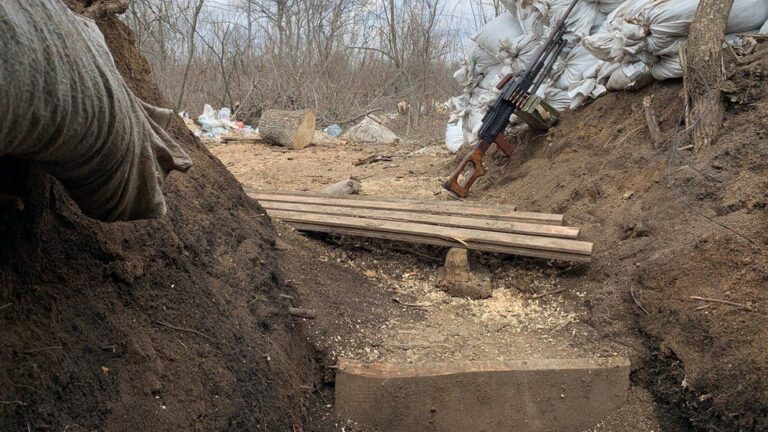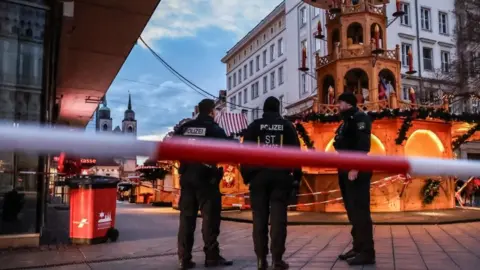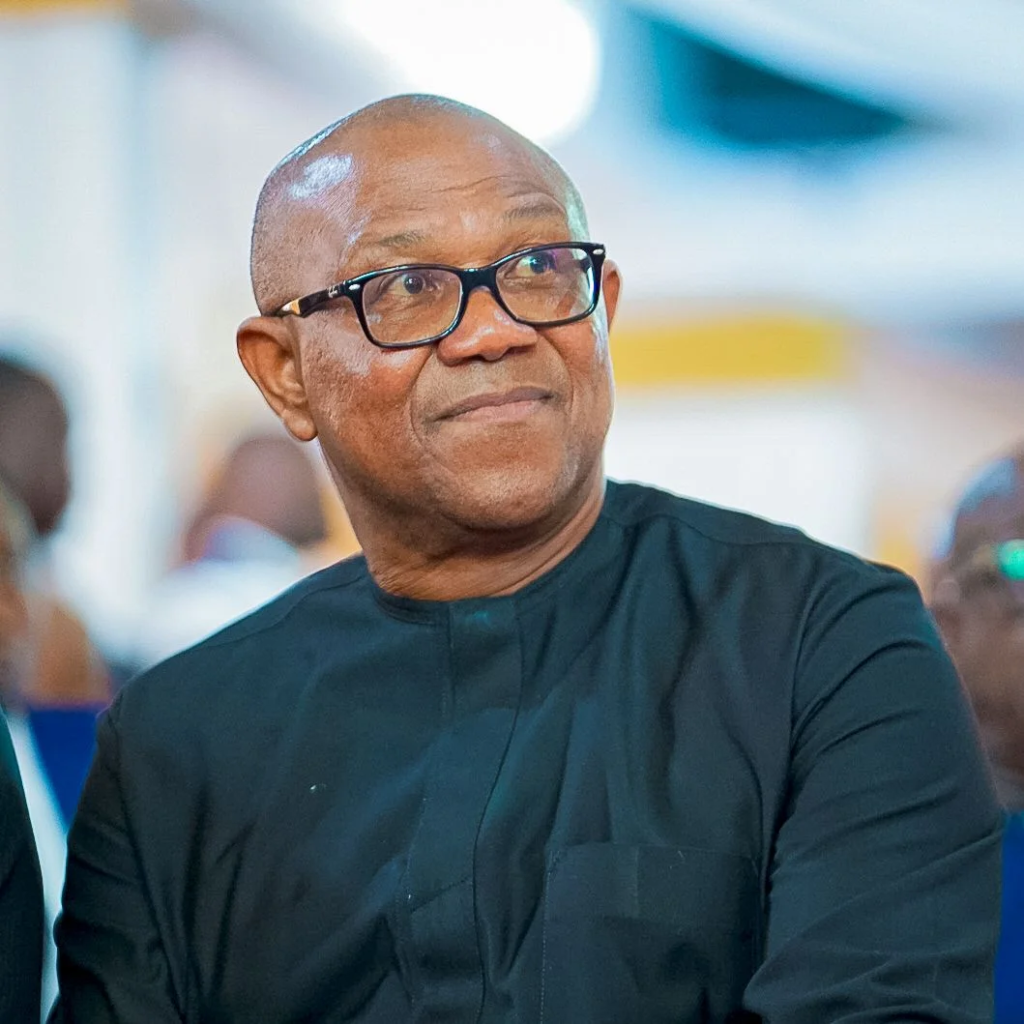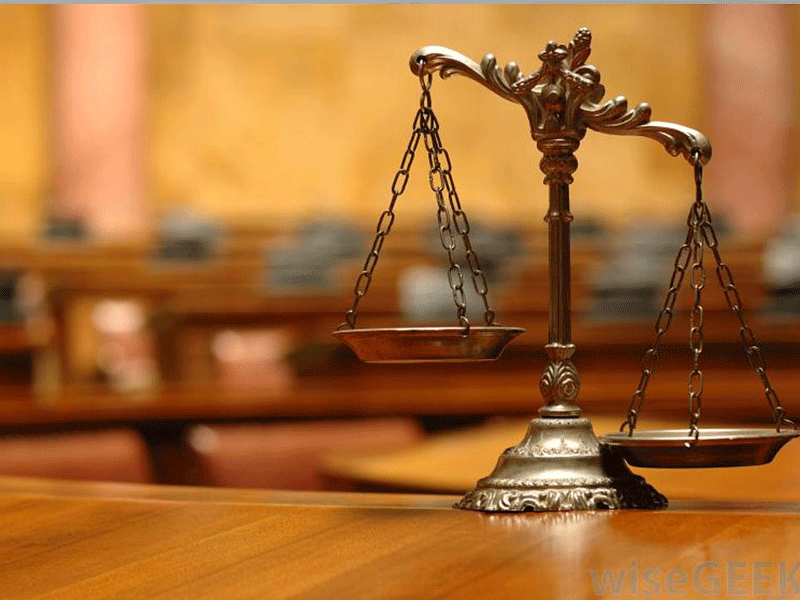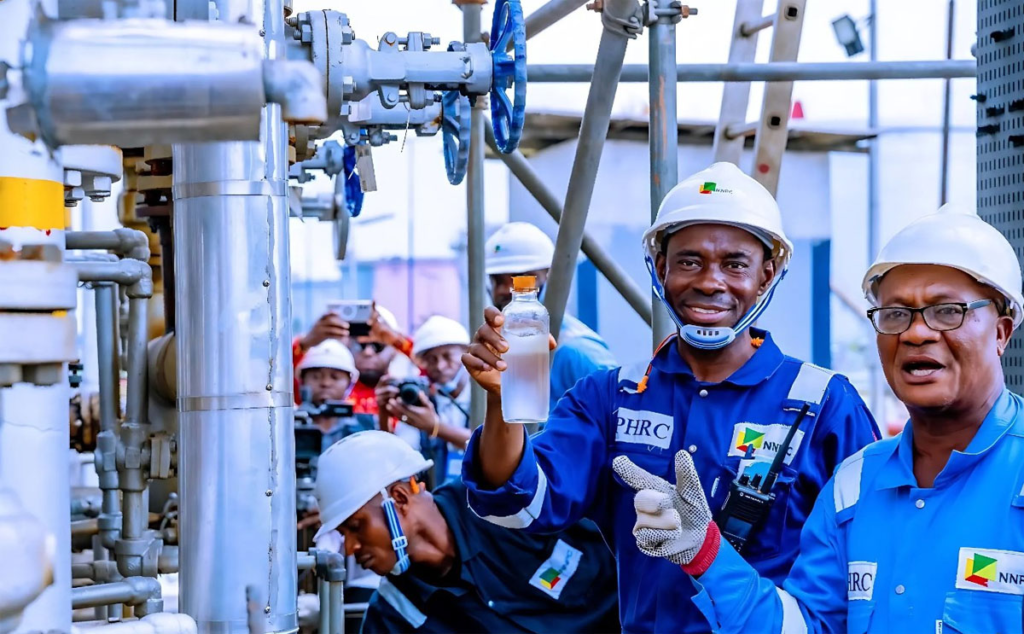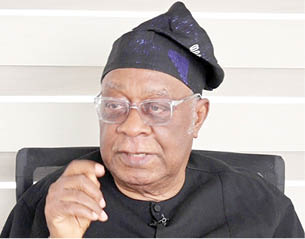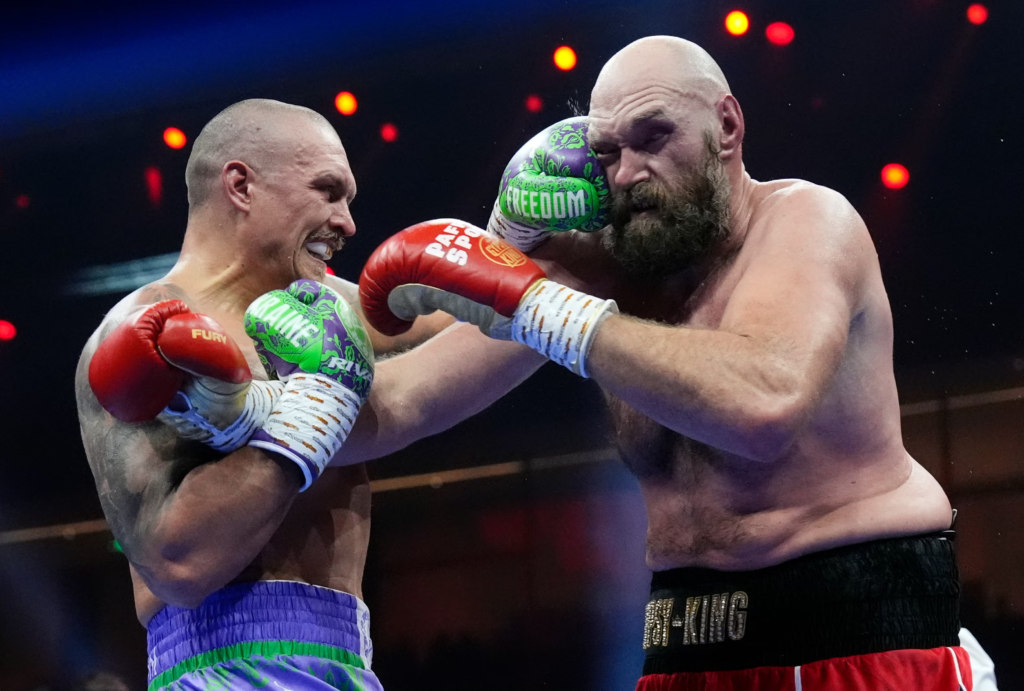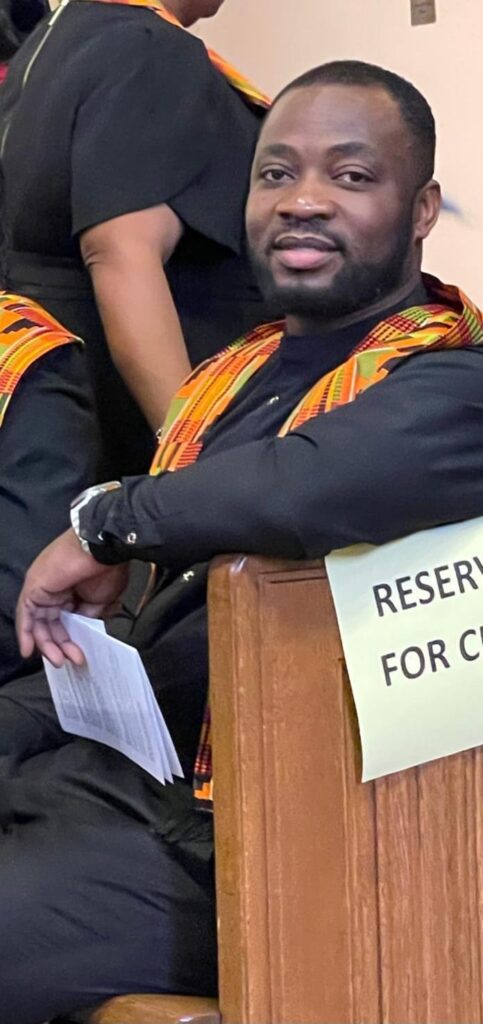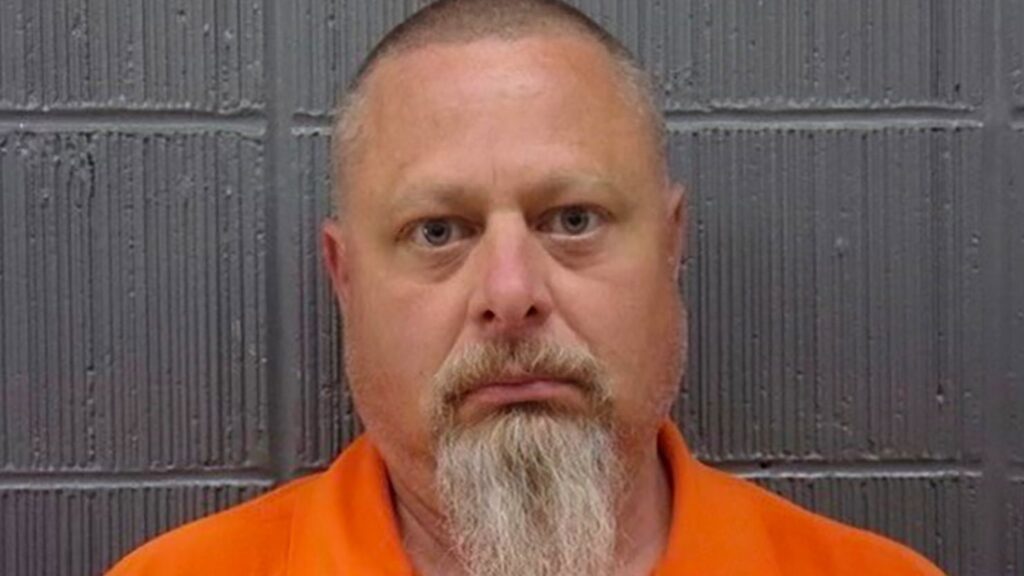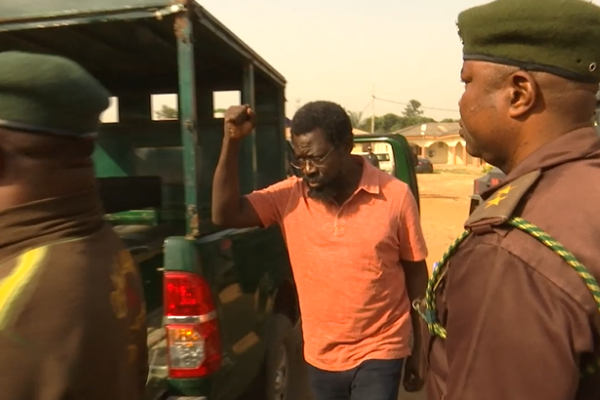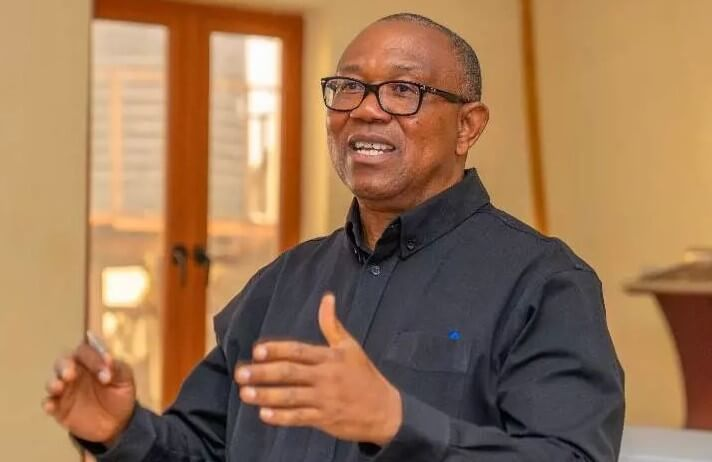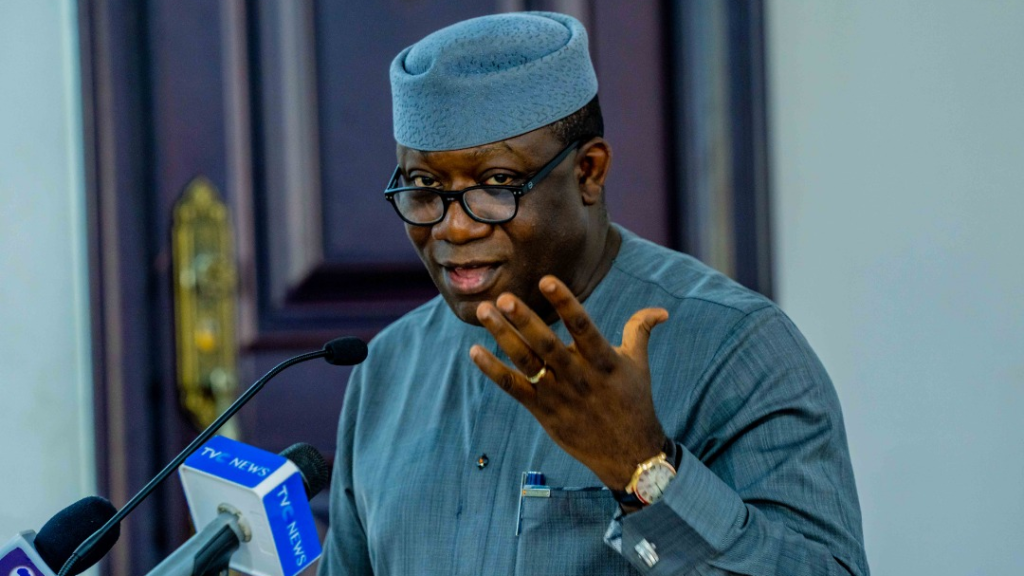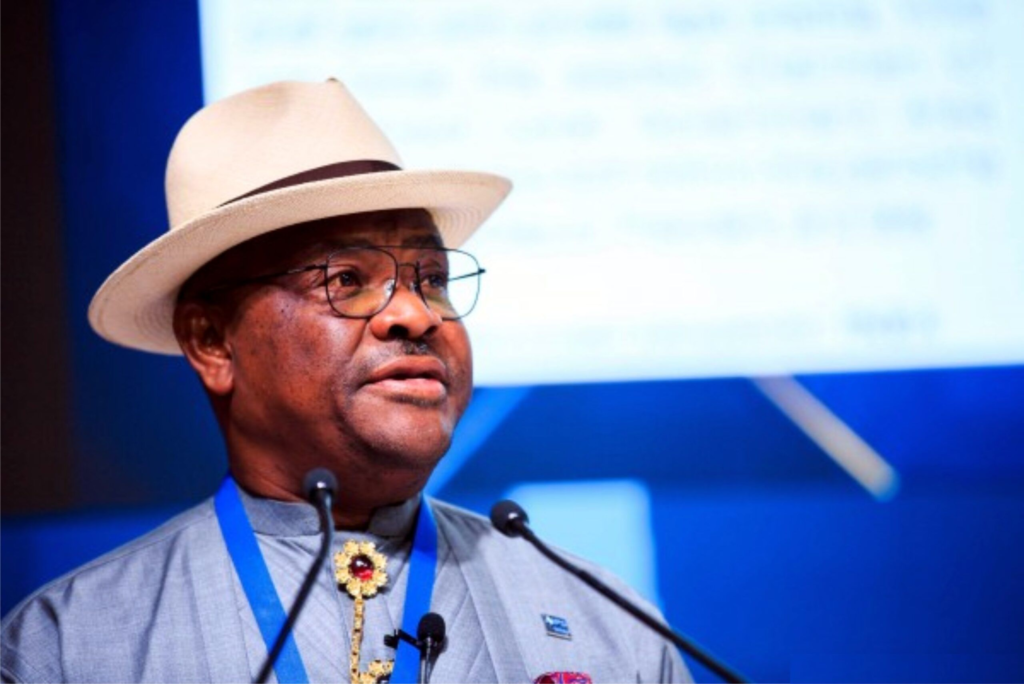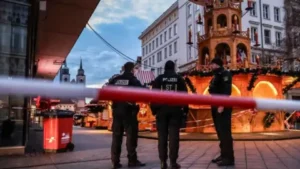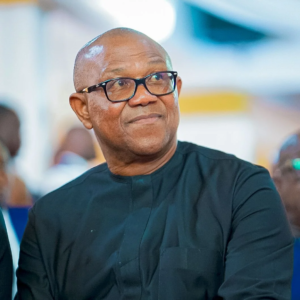The sound of Russian artillery grew louder as we drove to a Ukrainian frontline position in Luhansk. The rumble of shelling interspersed with the occasional burst of small arms fire. We were within 500 metres of the Russian positions.
This may be a conflict in the 21st century but, at times, with its maze of trenches, it feels more like something from the First World War.
Russia’s military offensive in eastern Ukraine is already intensifying. You can see it in the long queues of traffic driving west towards relative safety; you can feel it in the deserted streets as you drive through the towns and cities of the Donbas; and you can hear it with the increasing sound of Russian artillery.
Russia is redeploying more of its forces from northern to eastern Ukraine. The objective is to step up the battle in the Luhansk and Donetsk – parts of which were already controlled by Russian backed separatists. Russia will take advantage of its shorter supply lines – something which proved a problem in its failed offensive on the capital Kiev.
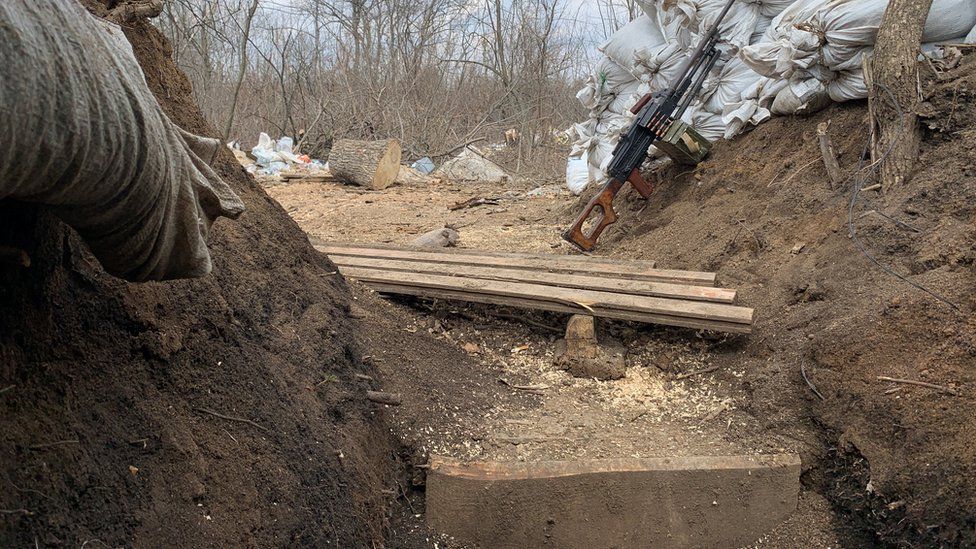
Russia and its proxies now control around 90% of Luhansk and more than half of Donetsk – the old industrial heartlands of Ukraine. There is smoke rising across a landscape already scarred by mining and factories.
Ukrainian forces have been fighting a war here for the past eight years. Their units include some of the country’s most battle hardened troops. Western officials say Ukrainian forces stationed in the Donbas are the best trained and equipped units.
Ukraine has already lost ground to Russia. But they are digging in for the fight. As we travelled east towards the frontline we saw new defensive positions and trenches being dug.
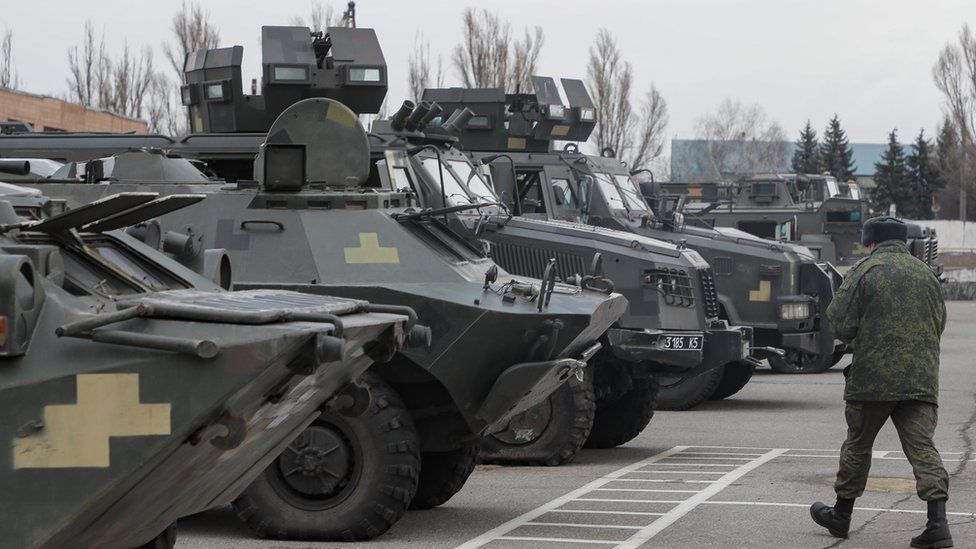 IMAGE SOURCE,REUTERS
IMAGE SOURCE,REUTERS
Anatoly, a 52-year-old soldier, peered through a periscope from his trench to view the Russian positions. He told me “I see the Russians, they look like me”.
But he was ready to hold the line. He said “if they try to take our position, I will kill them. If I don’t kill them, they will kill me. It’s the rules of war.”
Most of the men we talked to believed that their well-prepared trenches and defences will give them the upper hand against the invaders.
Andrej, a 27-year-old soldier, was kept company in his gloomy dug out by his pet dog Lucifer. He told me “we have good weapons and good fortifications and if Russia attacks us here they will lose”.
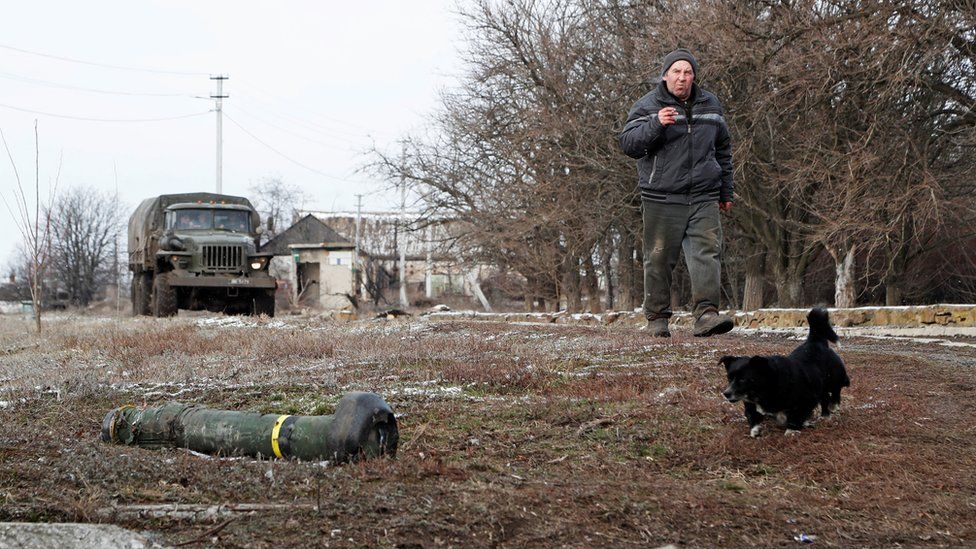 IMAGE SOURCE,REUTERS Image caption,Western nations have supplied Ukraine with over 17,000 javelin
IMAGE SOURCE,REUTERS Image caption,Western nations have supplied Ukraine with over 17,000 javelinThe troops say they’ve been supplied with western weapons such as javelin anti-tank missiles. They were grateful, but were hoping for more.
Andrej said that President Putin is a “psycho” but he added that his dead Russian soldiers would be good fertiliser for the soil.
The troops looked weary from the fighting, but all said morale was high.
Roman, a deputy commander, had spent four years studying psychology at Lviv University. As well as fighting he was able to offer his men mental health support.
But he said “usually people don’t need my help. They have a good motivation for fighting for their family, friends and home, unlike the Russians”, who he dismissively described as “zombies”.
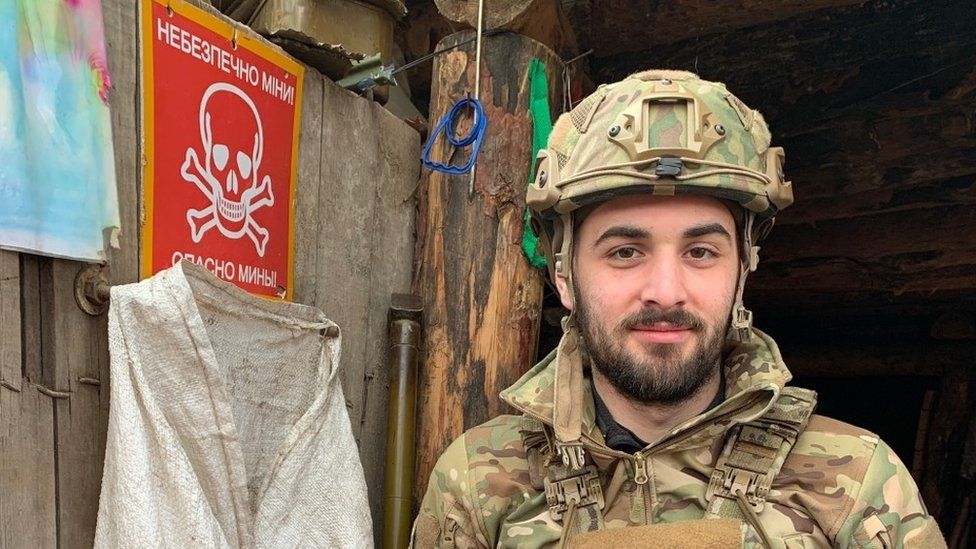
The Ukrainian troops are all well aware that Russia is redeploying more forces to the east. They know that worse is to come.
That Russian artillery though is already forcing tens of thousands of people to leave their homes.
BBC

